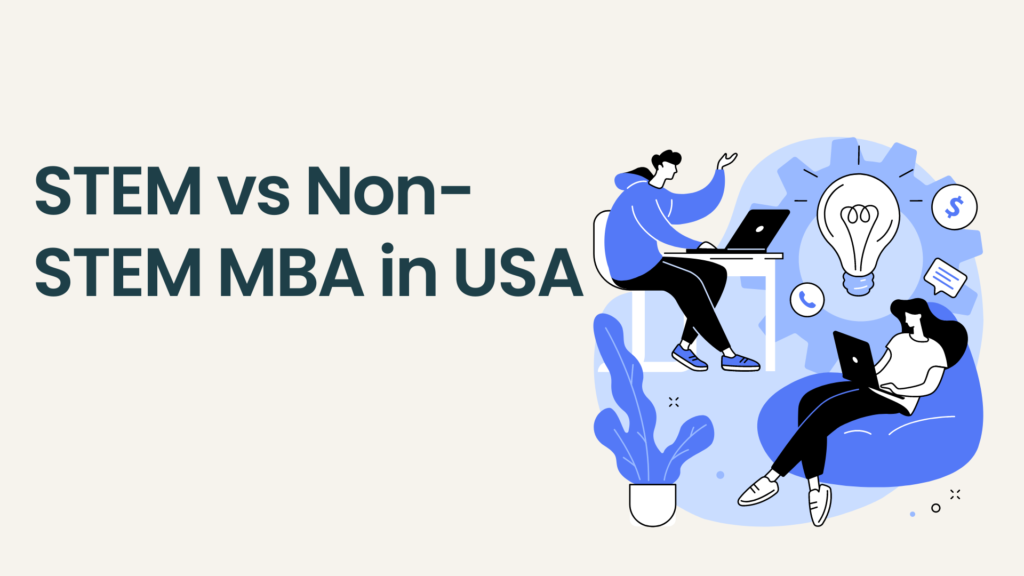This is a dilemma even I had when choosing which program to go for – Master’s or PhD in the US? Truth be told, most international students choose the path of a PhD over a Master’s due to more availability of funding and financial reasons. It is a known fact that PhD students have better chances of getting funding. However, there are other aspects you need to consider before making this choice. In this article, I will share a deep dive into the positives and negatives of both of these paths. I hope this article will help you to make informed decisions as an international student.
List of Useful Information
ToggleFinances
The biggest concern for pursuing a Master’s or PhD in the US is the finances. As a PhD student, you will get a scholarship, which will contain a tuition waiver and monthly stipend. It might also include health insurance in some universities. But in the case of a master’s program, apart from a few universities, it is unlikely (not impossible) to get all these financial perks a PhD student might get.
Long-term commitment
Another reason for not being interested in PhD is the long term commitment to a PhD degree. 5-6 years of investment in a PhD program and living as a poor graduate student can be challenging if you have a family. On the other hand, doing masters and then getting into a job can seem like a better option, as you are saving time of your late 20s or even whenever you are starting this journey in the US. By the time your peers graduate from the PhD program, you will be more experienced in the job market.
Job market and salary
However, one thing to keep in mind is that the jobs a PhD might get into are more specialized and they might even make more salary compared to only MS degrees. From my experiences, as I am from a biotech and engineering background, the starting salary for PhDs after their degree starts usually at 100k USD a year, whereas a Master’s degree holder might start somewhere between 75k and 80k. However, the salary discussion is not as simple. It might depend on your previous skills, size of the firm and location. Bottom line is, as a PhD, your starting salary will be higher than someone with a master’s. Also, in biotech and life sciences, priorities are mostly given to PhDs when it comes to promotions. Most leaders in the industry have a PhD as well as an MBA degree. So, choose according to your major.

Passion for science
Passion is an overrated word in my opinion. I am not saying that you need to eat and breathe science. But for a PhD, having a general curiosity is a must. Otherwise, this can be a very boring and unbearable experience. In PhD, you have to push yourself to reach the finish line. While your academic advisor is there to guide you, it is you who need to steer the wheels of your PhD journey. If you are not self-motivated and not enough interested in science, get a master’s; more specifically, get a professional master’s. At the same time, getting a PhD is not super difficult if you are disciplined, have a basic sense of science, and are eager to learn new things fast. You don’t have to be Einstein to get a PhD, but do justice to the taxpayer’s money who fund your scholarship.
Research is all about repeating same stuff over and over again. It requires grit, and failing becomes part of your research work. Have the mentality to fail. It is no longer a course work where you can get an A+ and be done with it.
Lack of mentoring opportunity
If you want to go to industry instead of academia, PhD programs will not mentor you enough. In that case, make sure you utilize all the professional development facilities in your school. Reach out to seniors, get an internship (it is a must) during your graduate program and take the lead in your professional development. Don’t wait on the support of your PI if you ultimately want to be in industry. There is no doubt that PhD programs need restructuring.
If you are willing to be in academia, the PhD and postdoc route is the best for you, and your PI is your academic father or mother. Even for academic positions, USA produces more PhDs than the available positions. So, academia has become increasingly competitive in recent years. Be mindful of that and your purpose of pursuing a master’s or PhD in the US.
Student debt for Master’s programs
As most master’s positions are not fully funded, you might have to take loans like MPOWER or Prodigy. The amount can vary from 20,000 USD to 40,000 USD. This is a lot of money to pay off. However, if you can manage a job after graduation, you can pay off the debt. You have to pick a major carefully. Considering the current US job market, think more about getting into debt and try to get a full funded master’s position.
Pick the right major
Some majors, such as computer science, might not need a PhD to land a job at Amazon, Microsoft, Google, Tesla, etc. Same goes with manufacturing and processing jobs. As a PhD is for a more specialized line of study, pick a PhD topic in a relevant field, like biotechnology and biological science and engineering.
What to do after getting your PhD?
Academia
But before you make this choice, consider what you truly want out of life. The academic landscape is changing more and more after a PhD. More PhDs are produced by PhD programs than by open universities, and most academic programs require years of post-doctoral work. University ranking is another important factor for academic roles. Graduates from highly esteemed colleges are given advantage over those from mid- to low-ranking universities when applying for professor positions.
So, why do people opt to pursue academic careers?
- Salary, flexibility in the workplace, and the ability to study whatever you desire
- However, constant financial stress, difficulty juggling administrative tasks, teaching, and research, and lack of comfort prior to tenure will be present.
- Additionally, academics get low pay in relation to the industry while starting out. But the salary scale is relatively lower than industry.
- You can also take roles solely as a teaching professor and a research professor, depending on what you prefer to work on.
National labs
If you solely want to do research, being a research professor or taking a position in the research lab is a great place to be.
- Salary is less, but less pressure compared to academia.
- The structure is more like an extension of your PhD or postdoc life.
- You will not have to worry about funding, as the labs run with government money. You can join as a postdoc on a visa. You don’t need to be a permanent resident or a citizen to join there.
Industry
Most PhDs end up in industry. Their specialized skills are valued.
- However, as there is less demand than supply, the situation might change in the future. The trend is already visible. Companies are hiring master’s with prior research experience rather than PhDs. It might be due to a higher pay scale for a PhD graduate.
- In industry, it is different than academic lab and the KPIs are different. You have to deliver a project within a time limit, not like open ended academia.
- You will be better paid.
- However, there is a risk of getting laid off compared to tenure-track academic positions.
- It has less freedom if you genuinely want to do science.
Summary:
Pursuing a master’s or PhD in the US is a critical choice you need to make. All cases are unique. So, understand your background and your future opportunities before you start your journey.
Read this article if you want to know more about international student loans without a co-signer.
For other loan options in the US, read this article on loans for international students in the US.
Word of caution:
Take your financial decisions carefully. Do not take up debt if you have other options. Debt can be a huge source of stress for international students. Debt should be the very last option on your list!



